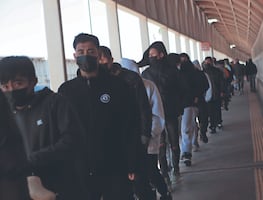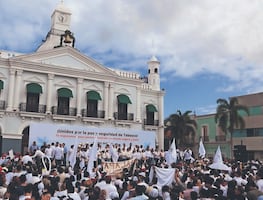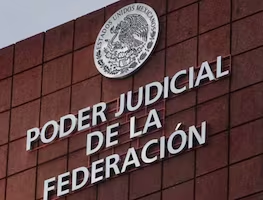Más Información

Municipios sin infraestructura para recibir migrantes, afirman ediles, senadores y activistas; no hay escuelas bilingües

Con banda y canastas de frutas reciben a Sheinbaum en la Mixteca de Oaxaca; “llego con el corazón vibrando”, expresa
The ill-will in the United States toward Mexicans and Hispanics in general, as shown by the massacre two weeks ago in El Paso, Texas , has deep roots in the history of the country and dates back to the arrival of the first English colonists on the eastern coast of North America.
The rancor against everything the Hispanic world represents is also joined with a deep lack of knowledge of both US history and the importance of the Spanish explorers since the start of the 16th century.
Otherwise, certain ideas such as those that motivated the El Paso shooter, Patrick Crusius , regarding the “Hispanic invasion of Texas” and his aim to kill Mexicans, as he confessed to the police, would not be present in American society.
Crusius went to an El Paso Walmart with an assault rifle on Aug. 3, where he killed 22 people , eight of them Mexican citizens , and wounded 24, many of them seriously.
His confession has sparked astonishment in Mexico over the magnitude of the resentment toward Hispanics after some three years of incendiary and humiliating rhetoric against them from President Donald Trump.
“Since the arrival of the English colonists on the east coast of the US, they have had a strong resentment against Spain and Catholicism . That powerful rancor expanded later towards things Hispanic and Mexico, ” Prof. Silvestre Villegas Revuelta s, with the National Autonomous University of Mexico’s Historical Research Institute , told EFE .
The initial antipathy toward Catholicism among the English colonists developed over the years and, with the independence of the US from England in 1776 , led to Washington’s formulating a strategic plan to expand and occupy the rest of the North American continent.
“Mexico suffered embarrassing defeats in armed confrontations with the United States – in 1836 and in 1848 – when the Treaty of Guadalupe Hidalgo was signed whereby Mexico lost half its territory, while the US became a regional power, ” Villegas said.
After the Treaty of Guadalupe Hidalgo, Mexicans in Texas and other states became US citizens with full rights, but the antagonism toward them felt by English and German Protestants has remained with a significant racial component.
In 1848 , Mexico lost territory in the current US states of New Mexico, Texas, Arizona, Utah, Colorado, Nevada, and California , but Mexicans had been living in those lands long before the Anglo-Saxons arrived.
“The anti-Hispanic sentiment remains unchanged . It’s an implicit rejection of Catholicism and of a living and vigorous Hispanic culture,” Villegas said.
What Donald Trump has done since launching his successful 2016 presidential campaign is to exploit a natural sentiment well-established in many Americans who clearly hate what Mexico and the Hispanic world represent.
“Mexico has had to coexist for the last two centuries with the historic and real threat of a powerful and imperialistic neighbor to the north, and today more than ever with Donald Trump and his humiliations,” said Á ngel Delgado , Hispanic studies professor at the University of Notre Dame.
What can the Mexican government do to combat the hostility of the US? Prof. Villegas said that the response of Mexican President Andrés Manuel López Obrador has been the correct one and the most realistic, just as other Mexican presidents have adopted in the past.
“In the face of US harassment, Mexican presidents have always responded with restraint by recognizing that if they answer Washington too strongly, it will respond with an invasion or with its gunboat diplomacy,” Villegas said.
With 80% of Mexican exports heading to the U.S., Mexico has little maneuvering room against Trump and that’s the reason for its historic resignation to trying to understand its northern neighbor. But now, this is taking place in an environment of greater hostility and danger, as shown by the El Paso massacre.











